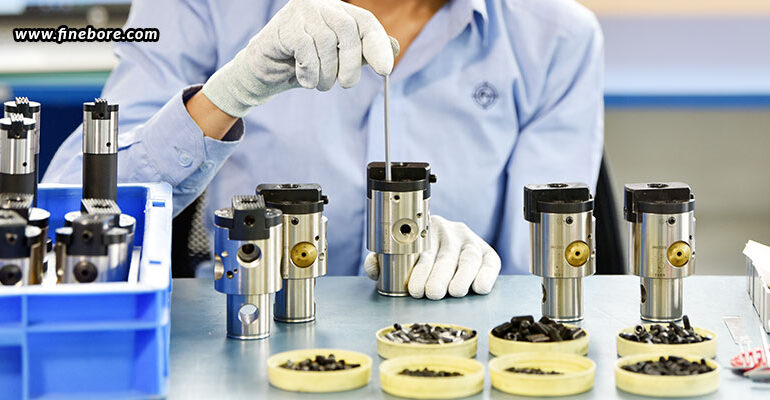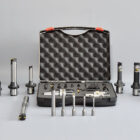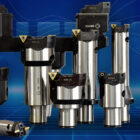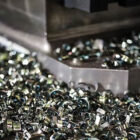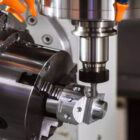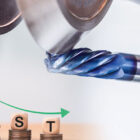A special instrument called a boring bar is needed for the machining operation of boring, which is typically done on a lathe. It is a special tool used to enlarge a hole that has already been drilled so that it meets the required specifications. It is crucial to understand boring bars and their types because there are different kinds that are appropriate for various applications.
What is a boring bar?
A boring bar, generally cylindrical in shape, is a unique lathe tool, housing a single-point cutting tool at one end. This bar is used to enlarge an existing hole’s internal diameter and bring it into compliance with the required standard. A boring bar is a long tool that protrudes from the tool holder, in contrast to other lathe cutting tools that are short in length. This makes it susceptible to vibrations when applying powerful cutting forces. Boring differs considerably from reaming and drilling operations due to the boring bar’s special ability to create holes that are larger than its diameter.
What type of boring bar to use?
The kind of lathe being used and the material being machined both influence the choice of boring bar. Metal lathes use a clamped boring bar secured to the tool post, relatively more rigid than the hand-held boring tool used in wood lathes. A thick boring bar that can produce powerful cutting forces with little wear and vibration is necessary when machining hard materials. In contrast, soft materials require relatively less cutting force, resulting in less deflection of the boring bar, making it ideal to use a thin boring bar that provides enough clearance to evacuate long, stringy chips produced during the machining of ductile materials. Therefore, it is important to choose an appropriate boring bar that provides enough rigidity to handle the stress developed during the cutting process while ensuring easy chip clearance.
The basic geometry of a boring bar
In addition to its size, the geometry of the boring bar, is a key factor in determining how well it can bore holes of various sizes and depths. Some of the basic aspects of a boring bar are as follows.
- Minimum bore diameter – This is the diameter of the cutting end of the boring bar which determines the minimum size of the hole required for using the boring bar.
- Maximum bore depth – This is the length of the cutting end of the boring bar, which determines the maximum boring depth of the boring bar.
- Shank diameter – This is the diameter of the part of a boring bar that is clamped in the tool holder, which is the thickest part of a boring bar.
- Overall length – This is the total length, which comprises of the shank length and the cutting end length of a boring bar.
- Centreline offset – This is the distance between the center axis of the tool’s shank and the tip of the cutting edge.
- Nose radius – This is the curvature of the tip of the cutting edge, where a larger nose radius leads to a larger contact area between the cutting tool and workpiece surface, resulting in longer tool life and smoother cuts, while reducing the stress on the cutting edge.
- Clearance angles – There are two types of clearance angles, namely side and end, which prevent the rubbing of the cutting tool against the workpiece, thus eliminating the risk of abrasive wear of the workpiece and the tool. The side clearance angle ensures a tapered face of the cutting head, while the end clearance angle refers to the taper of the top of the cutting head.
Considering all the above-mentioned dimensions and types, you should be in a better position to select the perfect boring bar for your application. But if you’re having trouble deciding, you can always contact a reputable boring bar manufacturer who can guide you towards the best option. For instance, when you get in touch with a professional like FineTech Toolings, you can always discuss your requirements, and have the most appropriate boring bars in Bangalore delivered to you. Experts in manufacturing a variety of boring tools, the company also possesses an excellent R&D capability to constantly improve the designs, and manufacture products that are industry-specific in nature and in compliance with the highest standards of quality. Hence, you can rest assured that you will only get the most genuine boring products when you approach FineTech Toolings.

